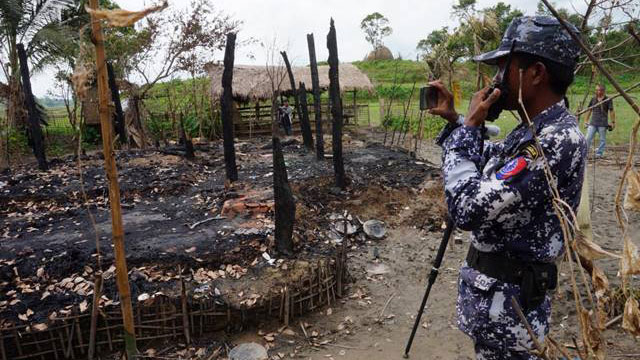Amnesty International has accused a secretive Myanmar corporation with links to international businesses of financing Myanmar's military, including many units directly responsible for human rights violations against the Rohingyas and other ethnic minorities.
Leaked official documents analysed by the global rights watchdog revealed Myanmar's military received 16 billion USD as dividend out of a total 18 billion USD from shares of Myanmar Economic Holdings Limited (MEHL) between 1990 and 2011. The military continues to receive the benefits as of now.
In a report published today, Amnesty International (AI) revealed that MEHL is owned by 381,636 individual shareholders, who are all serving or retired military personnel, and 1,803 "institutional" shareholders, consisting of "regional commands, divisions, battalions, troops, war veteran associations".
MEHL's shareholders include military units and high-ranking military officers directly implicated in crimes under international law and other serious human rights violations, it said.
For example, a 2010-11 report of Myanmar's Directorate of Investment and Company Administration (DICA) lists as shareholders 95 separate military units that fall within the Western Command, the regional command covering and overseeing operations in Rakhine State, Amnesty International said.
Together, they owned more than 4.3 million shares and received payments of more than 1.25 billion kyat (208 million USD) in 2010-11. The Western Command is also listed as an MEHL shareholder in the Myanmar's 2020 DICA document, Amnesty said.
In 2010-11, military chief Min Aung Hlaing owned 5,000 shares and received a dividend payment of 1.5 million kyat (250,000 USD). The UN has called for Min Aung Hlaing, who oversaw the brutal campaign against the Rohingyas in 2017, to be investigated and prosecuted for genocide, crimes against humanity, and war crimes.
The headquarters of battalions from the 33rd and 99th Light Infantry Divisions are also listed as shareholders. Amnesty International has documented these divisions' involvement in crimes against humanity against Rohingyas, including massacres of women, men, and children, in Rakhine State, and war crimes in Kachin and northern Shan States.
"These documents provide new evidence of how the Myanmar military benefits from MEHL's vast business empire and make clear that the military and MEHL are inextricably linked," said Mark Dummett, head of business, security and human rights at Amnesty International.
"This is not a case of MEHL unwittingly financing human rights violations -- its entire board is composed of high-level military figures.
"While outsiders can't know how these dividends are spent by military units, the size and regularity of these payments suggest that they cover operational costs," said Mark Dummett.
Yadanar Maung, spokesperson of Justice for Myanmar, said any company doing business with MEHL risks contributing to these violations and must take urgent steps to cut ties.
The rights body has identified at least eight companies -- Ever Flow River Group Public Co., Ltd, a Myanmar logistics company; Kanbawza Group (KBZ), a Myanmar conglomerate with jade and ruby mining operations; Kirin Holdings, a Japanese beverage company; INNO Group, a South Korean property developer; Pan-Pacific, a South Korean manufacturer and exporter of clothing; POSCO, a South Korean steelmaker; RMH Singapore, a Singaporean fund with a tobacco operation in Myanmar; and Wanbao Mining, a Chinese metal mining company -- having links to MEHL.
Amnesty wrote to the eight companies who operate jointly with MEHL.
In its reply, Pan-Pacific announced that it is terminating its business partnership with MEHL. KBZ and Kirin have stated they are reviewing their relationship with MEHL. Others did not provide such commitments or did not respond at all.
"In the face of this incontrovertible evidence, businesses who currently partner with MEHL must end these relationships responsibly," said Mark Dummett.





